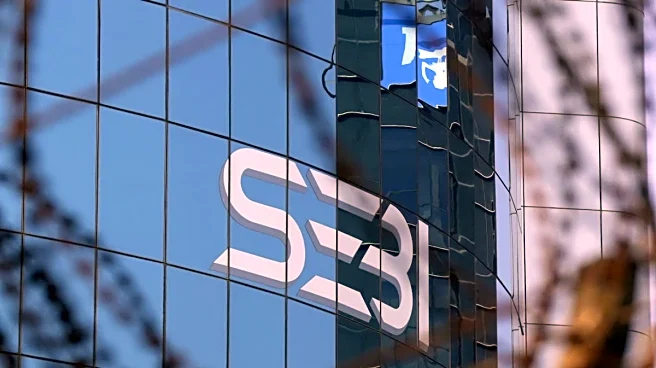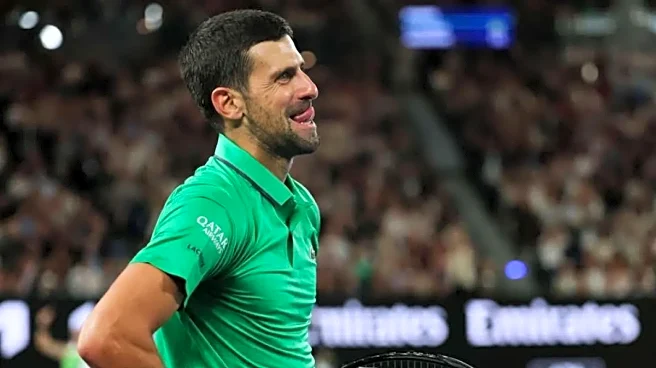The Securities and Exchange Board of India (SEBI) has opposed an application filed by Ketan Parekh — the former stock market operator at the centre of the 2000-2001 securities scam — seeking permission to travel abroad for four months. The regulator cited Parekh’s “history of misusing” foreign travel permissions to carry out fraudulent trades via WhatsApp groups and alleged that he harbours a “sinister motive” to evade surveillance, skip court proceedings and “settle in a foreign country” to execute plans that could harm the country’s economy and investors.
Parekh, who was barred from the markets for 14 years for his role in the 2000-2001 scam and continues to face criminal charges before a special SEBI court in Mumbai, requested permission to travel
to the UK, UAE, Singapore, Thailand, Sri Lanka, South Africa, the European Union and Georgia for a family vacation and to attend two weddings. He also cited the health condition of his elder daughter, saying both his daughters live in the UK and that he wished to spend quality time with them.
In a response filed earlier this month, SEBI opposed the plea, referring to an ex parte interim order issued in January 2025 by a whole-time member of the regulator that again debarred Parekh, along with two others, for alleged front-running. The order said Parekh had passed on time-sensitive, non-public information within minutes to Singapore-based associate Rohit Salgaocar, enabling illegal profits for the frontrunners.
Special Judge R M Jadhav is expected to pronounce an order on Parekh’s plea on Tuesday.
SEBI’s submission to the court read: “The applicant (Parekh) has a history of misusing limited foreign travel permissions. While earlier permissions were sought on compassionate grounds, the investigation has shown that during the same period he was actively engaged in orchestrating fraudulent trades through WhatsApp groups like ‘Jack-ST’ and ‘Jack-Saro’. This pattern shows that travel applications are used as a cloak to disguise ongoing illegal activity.”
The regulator further alleged: “…Ketan Parekh and his related entities have filed the present application to travel abroad not only with sinister motive to avoid the surveillance of respondent and to avoid Court proceedings, but also (to) try to settle in a foreign country, from where they can execute their sinister plans which will affect our country’s economy as well as innocent investors at large.”
SEBI’s January 2, 2025 order detailed Parekh’s covert methods, noting that he used multiple SIM cards not registered in his own name and saved under aliases such as “Jack”, “Boss”, “Bhai” and “Wellwisher” on the phones of co-conspirators. This, SEBI said, reflected his intent to evade detection: “If permitted to travel abroad, monitoring his activities or communications would be impossible.”
Special Public Prosecutor Anubha Rastogi told the court that Parekh has not challenged the January order and that a blanket four-month travel permit would make it difficult to trace his activities.
The January order also directed Parekh and two other entities to deposit ₹65.77 crore in alleged wrongful gains and restrained them from buying, selling or dealing in securities. SEBI highlighted that Singapore — home to Salgaocar — is among the destinations Parekh intends to visit.
The interim order further recorded that Parekh and Salgaocar communicated frequently via WhatsApp and internet calls, with IP logs showing 151 interactions. SEBI argued that this points to the cross-border nature of the conspiracy, adding: “Allowing the applicant to travel abroad at this stage would enable him to seamlessly continue such foreign coordination beyond the reach of Indian regulators and this Honourable Court.”
The regulator also warned that such travel could facilitate the use of encryption and cryptocurrency to obscure transactions and communications, reducing Parekh’s and his associates’ digital footprints. It noted that Parekh’s application did not specify which EU countries he planned to visit: “It is submitted that there are countries with which India does not have extradition treaties and therefore the likelihood of being able to secure the presence of the accused becomes slim. Even otherwise, India is facing several issues in bringing back the fugitives of law from such countries.”
When Parekh was granted bail in 2017, one of the conditions was that he would need to seek the court’s permission before leaving India. His current application seeks phased travel permission from October 4, 2025, to February 3, 2026, which his lawyers said was filed as a single request to avoid repeated applications.
During Friday’s hearing, Parekh’s lawyers argued that he had previously been allowed to travel abroad for personal reasons by different courts — including by the Supreme Court in 2021 to the UK for his daughter’s medical treatment, by the special court in 2022, and in December 2023 to the UK, Dubai, Singapore, the EU and the US.
A chartered accountant by training, Parekh was a prominent figure in India’s stock markets between 1999-2001, known for rigging shares of information, communication and entertainment (ICE) companies through circular trading, using funds from Gujarat-based Madhavpura Mercantile Cooperative Bank and the Kolkata stock exchange.
Mentored by Harshad Mehta, the architect of the 1991 market scam, Parekh spearheaded a bull rally in 1999-2000 that coincided with the global dot-com boom. Traders and investors followed his lead in ramping up the so-called K-10 stocks — ten ICE companies whose promoters even funded Parekh to boost their share prices.
The scheme collapsed amid a payment crisis at the Kolkata exchange, compounded by the bursting of the global tech bubble. The fallout triggered a market crash, contributed to the collapse of UTI, and prompted SEBI to tighten market regulations.
Parekh was named in over two dozen cases under the SEBI Act for trading violations and non-payment of penalties. In 2003, SEBI barred him from the markets for 14 years. A special CBI court later convicted him in 2014, sentencing him to two years’ imprisonment.


/images/ppid_59c68470-image-17708350320838052.webp)




/images/ppid_59c68470-image-177083752855419301.webp)

/images/ppid_59c68470-image-177083752668871927.webp)


/images/ppid_a911dc6a-image-177083556748629873.webp)

/images/ppid_a911dc6a-image-177083563836656334.webp)
/images/ppid_a911dc6a-image-177083553466311808.webp)